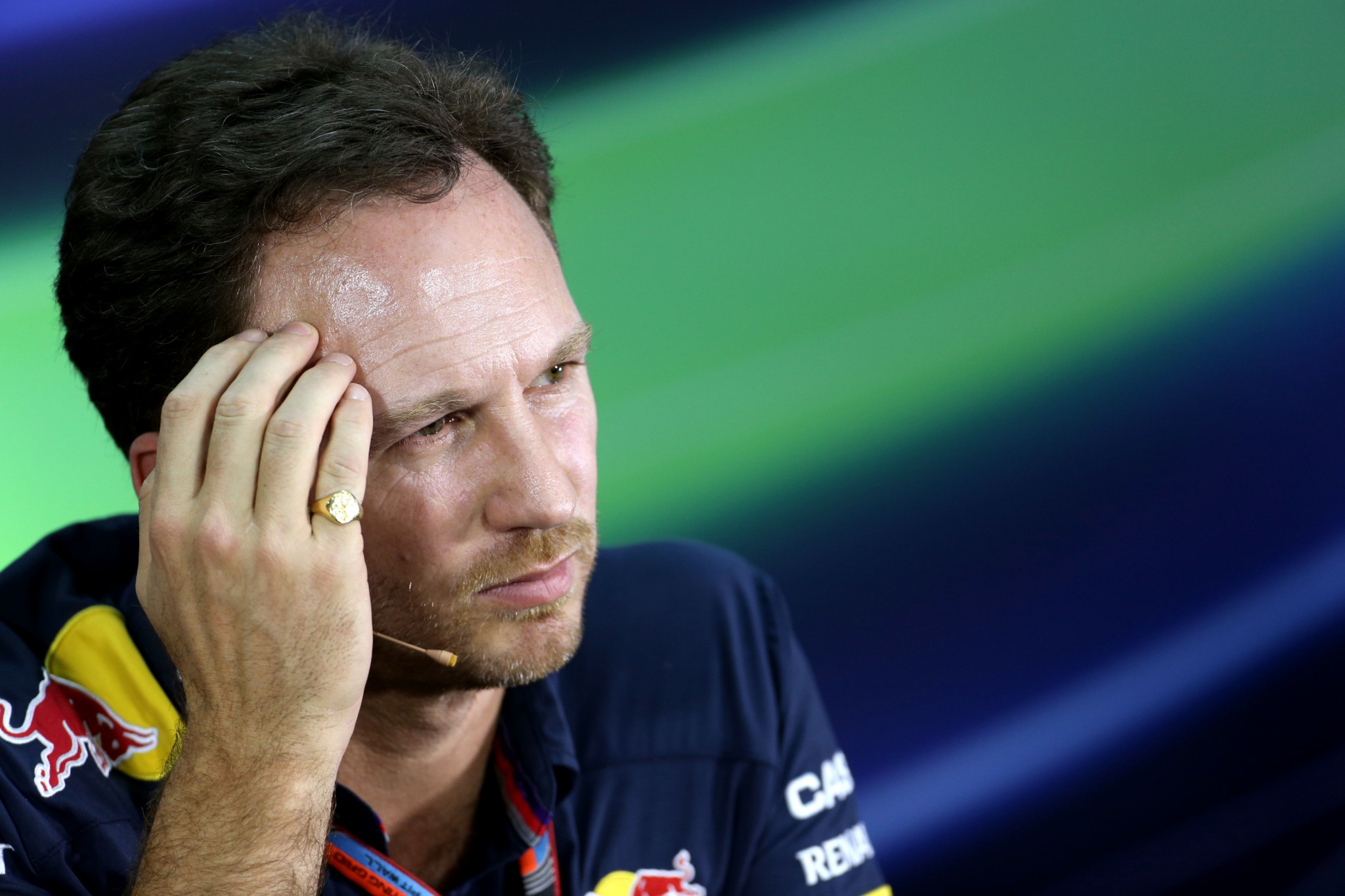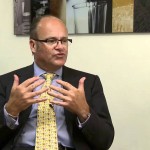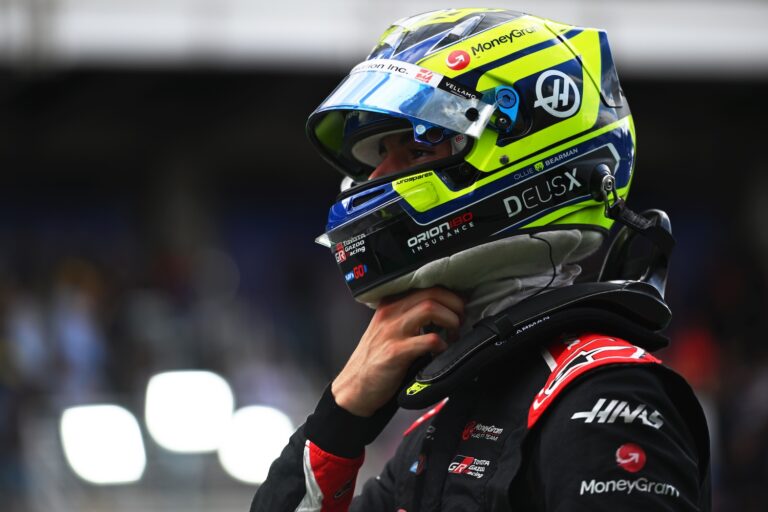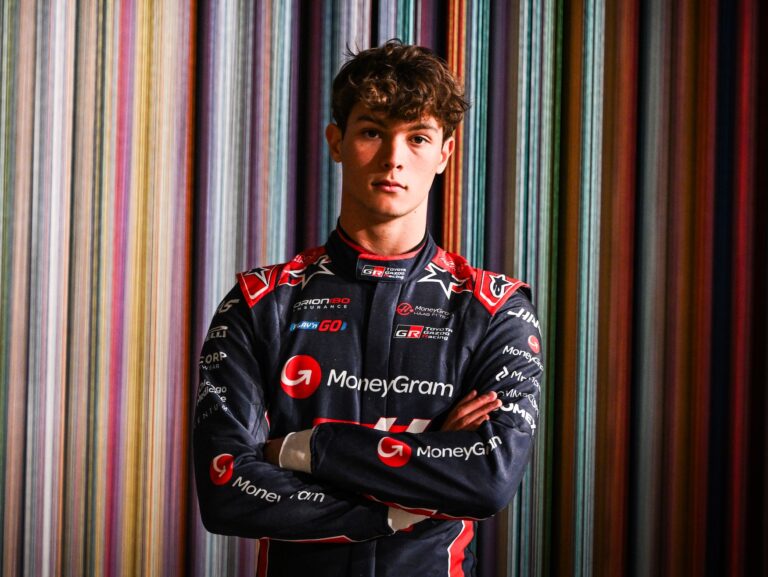Formula 1 supremo Bernie Ecclestone is not getting any younger, and the number of his critics is rising by the day. It’s time to consider some key individuals who might replace him.
When facing charges for fraud in Germany a year and a half ago, Bernie Ecclestone spoke for the first time about handing over control of his billion-dollar Formula 1 empire. And as his heir to the throne, he selected Christian Horner, Team Principal at Red Bull. Rather than handing over his lifetime achievement to a generic businessman or consortium, Ecclestone rates Horner as the perfect replacement. Their relationship has always been a close one, and the energy drink company racing team’s boss, for example, was one of the very few guests at Ecclestone’s wedding to Fabiana Flosi in Switzerland.
The reigning Formula 1 chieftain is convinced that “it needs someone who knows the sport. If someone comes in from outside, a corporate type, I don’t think I could work with them. It wouldn’t last five minutes”. Horner, however, felt honoured, but hesitant about the job offer: “I don’t think anybody else could do Bernie’s job. The way he operates is unique. Bernie has an enviable record of securing investments from world leaders in Formula 1 and producing the incredible facilities we have in places like Abu Dhabi and Singapore. The sport needs Bernie more than ever in these tough economic times, when teams are struggling. It will be an extremely sad day when he does stand down”.
Understandably, Horner is not the only one linked with taking over from Ecclestone. The list is very long and exclusive, including the likes of Sir Stuart Rose, the former executive chairman of Marks & Spencer, and Justin King, the chief executive of Sainsbury’s. Let’s take a glance at some of the more realistic contestants.
1) Christian Horner
Horner first raced himself in a Kart at the age of twelve and soon after moved to Formula Renault. He continued his racing career, competing in the British F3 championship with four different teams between 1993 and 1996, and then moved into the F3000 series. Placing 21st and 33rd in his first two seasons, he realised he would not make it to the top level. Thus, he retired from driving to concentrate on team management.
Supported by his father, Garry, and family friend and motorsport insider David Richards, Horner took on his first principal job at Arden International. At just 25 years of age, naturally, he initially struggled for results with his newly founded Arden team. In 2003, Arden won the drivers’ championship with Bjorn Wirdheim securing a runaway title by a massive 35-point margin, and Tonio Liuzzi repeated the trick the following season. Horner’s remarkable record brought him to the attention of Red Bull owner Dietrich Mateschitz, and when the drinks company took the radical step of setting up its own Formula 1 team, the Brit was asked to run the operation.
Only a year later, Horner was able to celebrate the team’s first podium finish, jumping into Red Bull’s swimming pool at the Energy Station motorhome at the Monaco Grand Prix, only wearing a Superman cape. Between 2005 and 2008, the team never came better than fifth in the constructors’ championship, but Horner’s strategy was long-term. With the aid of aerodynamic wizard Adrian Newey and shooting star driver Sebastian Vettel, he gradually overhauled the team’s culture, injecting creativity and belief, and managed to pocket Red Bull Racing’s first race victory in China in 2009, followed by the first world title in 2010. By adding three more, he put the Austrian outfit in the position as the team to beat in the elite class of motor racing.
Over the years, Red Bull has not been a stranger to controversy. The team was accused of using flex-wing technology in 2010 and 2011, of having illegally modified their engine mapping and changed their floor design and wheel hubs in 2012, and of applying a traction control system in 2013, all of which would have been breaches of the FIA regulations. But Horner has managed to steer the attacked ship into safe waters. Now older and wiser, the 42-year-old Brit is well aware of how hard it is to become the top team in the sport, but how much harder it is to stay there. With Red Bull trailing the top teams, Horner may well be ready for a new, even greater challenge.
Racing experience: YES
Business background: YES
Currently working in Formula 1: YES
Paddock magazine’s “100 Most Influential People In F1” position: 15th (12th in 2014)
2) Richard Scudamore
The current chief executive of the English Premier League is also a potential candidate, as he was named by Formula 1’s major stakeholder, CVC, as “the perfect man for the job” when Ecclestone was under fire in the trial in Germany. Scudamore, who has held this position since November 1999, attended Kingsfield School in Bristol and then studied Law at the University of Nottingham. However, instead of practising law, he spent nine years at Yellow Pages, a division of British Telecom, progressing through sales and marketing to the position of Sales Director.
Over the following ten years, Scudamore worked in the newspaper industry, primarily as Group Advertising Director for Thomson Reuters, including a three-year stint in the US. He was the Chief Executive of the Football League, responsible for the 72 professional clubs outside the Premier League, for two seasons before being appointed CEO of the Premier League in 1999. The Englishman is responsible for negotiating broadcasting and sponsorship contracts worth in excess of £3.5 billion. He is also a founding board member of the Football Foundation and has overseen the international commercial expansion of the Premier League in the Middle East and North Africa region.
In 2013, Scudamore was awarded the “Outstanding Contribution to Football” Award at the Football Business Awards. However, in the following spring, misogynistic emails written by him were leaked to the Sunday Mirror by a former PA, putting him under fire. The 54-year-old married father of five apologised, and the storm has since died down.
Racing experience: NO
Business background: YES
Currently working in Formula 1: NO
Paddock magazine’s “100 Most Influential People In F1” position: Not on the list
3) Gerhard Berger
The 65-year-old former Formula 1 racing driver competed for 14 seasons in the top flight, twice finishing 3rd overall in the championship driving for Ferrari, and has also been named repeatedly as a potential successor. Berger won ten Grands Prix and earned 12 poles in his 210 GP starts, making him one of the most experienced Formula 1 drivers of all time. His first and last victories were also first and last for the Benetton team in an eleven-year span. He was also a race winner with Ferrari and with McLaren, where he drove alongside Ayrton Senna, contributing to the team’s 1990 and 1991 constructors’ titles.
Berger, a multiple race winner in European Formula Three, moved up to Formula 1 in 1984. It was not until he joined Benetton in 1986 that his Formula 1 career took off, with his first Grand Prix win coming in Mexico. Berger established himself as a very fast driver in Formula 1 that year, but was also successful in Group A touring cars. He won the 1985 24 Hours of Spa. For the 1987 season, he replaced Stefan Johansson at Ferrari and turned the Scuderia into a winning team in the latter half of the season, triumphing in Japan and Australia.
From 1990 to 1992, Berger joined his best mate Senna at McLaren, but although generally quicker than his predecessor Alain Prost in relation to Senna, he was rarely able to match the Brazilian’s pace during races. He took three wins in these three seasons but was persuaded by his countryman Niki Lauda to return to Ferrari in 1993.
In 1994, Berger recovered from the deaths of close friend Senna and countryman Roland Ratzenberger in Imola to score an emotional win at Hockenheim, Ferrari’s first since 1990. With the arrival of Michael Schumacher in Maranello in 1996, Berger moved back to Benetton and retired at the end of the following season, pocketing his final victory at the age of 37, again at Hockenheim, only a few days after the death of his father in an aeroplane crash.
Sauber offered Berger a drive for 1998, which he turned down. Berger later acted as an advisor to Bruno Senna, Ayrton’s nephew, who made his Formula 1 debut with the HRT F1 Team in the 2010 World Championship and subsequently switched to Williams. A hugely popular figure in Formula 1, Berger was regularly seen in the pit lane in his new capacity as Competitions Director at BMW, overseeing their successful return to Formula 1 in 2000.
In February 2006, he acquired 50% of Scuderia Toro Rosso in a business deal that saw Red Bull boss Dietrich Mateschitz purchase half of Berger Logistik, a road haulage company founded by Berger’s father, Johann, in 1961. His Toro Rosso team won their first Grand Prix with Sebastian Vettel taking the win. He sold his share back to Mateschitz in November 2008. In 2012, Berger was appointed President of the FIA Single Seat Commission.
Racing experience: YES
Business background: YES
Currently working in Formula 1: NO
Paddock magazine’s “100 Most Influential People In F1” position: Not on the list
4) Paul Walsh
Formula 1 owner CVC has also named businessman Paul Walsh as a possible candidate for Ecclestone’s post. And even if the first “coup attempt” failed, when Bernie returned to his place on the Formula 1 board, from which he had stepped down during his involvement in a bribery court case, replacing Walsh again, the highly successful former chief executive of the drinks company Diageo is still an option. Educated at Oldham College, he initially aspired to become a fighter pilot but failed the medical examination to fly fighter jets due to colour blindness. Instead, he graduated from Manchester Polytechnic with a degree in accounting and economics and entered the soft drink business.
In 1982, Walsh joined London-based property and brewing conglomerate Grand Metropolitan as a financial planner and account manager, working his way up through the ranks. Amongst other deals, when working in the US, he was instrumental in the 1988 sale of the Intercontinental Hotels chain for $2.3 billion in cash to the Japanese Saison Group, later described as the deal of the decade. In 1999, Walsh returned to England and was elected COO of Diageo in January 2000, and CEO in September 2000. He took over a company that had stagnated and transformed it. His most notable decision is the acquisition of Seagram, which added Captain Morgan rum and Crown Royal Canadian whisky to Diageo’s portfolio.
He has continued the same straightforward style of management that he had practised as head of the Pillsbury food business. Back then, he sold off non-essential assets such as Burger King and aggressively marketed a select number of “core” brands. He claims to have inherited his work ethic from his father and his organisational skills from his mother. He has described them as “strict” yet “loving”. In 2012, he was a member of Prime Minister David Cameron’s Business Advisory Group and is one of the highest-paid businessmen in the United Kingdom. In February 2014, Walsh became the non-executive chairman of Compass Group, the world’s largest catering company. Following the failure of the CVC’s coup d’etat, Walsh ruled himself out of the running to become Formula 1’s next chairman, for the time being.
Racing experience: NO
Business background: YES
Currently working in F1: NO
Paddock magazine’s “100 Most Influential People In F1” position: Not on the list
5) Toto Wolff
The current Mercedes team boss is the business’s shooting star. The 43-year-old Austrian only started his motorsport career in 1992 in Formula Ford and two years later won his category at the 24 Hours Nürburgring, which earned him a drive in the FIA GT/GT1 series in Italy. He won several races, but moved his focus to strategic investments in his company, Marchfifteen, later Marchsixteen Investments. Initially concentrating on IT companies, the company now deals with medium-sized industrial and listed companies, including Williams F1, German HWA AG, and BRR Rallye Racing. However, finishing runner-up in the Austrian Rally Championship in 2006 and winning the 24-hour race in Dubai, Wolff’s always remained a petrol-blooded fan.
Buying a 49% stake in the German HWA AG in 2006, he was at the heart of the Deutsche Tourenwagen Masters race programme for Mercedes-Benz. Wolff serves as deputy chairman of the board to Mr Hans-Werner Aufrecht, founder of AMG, and is also co-owner of a sports management company with Mika Häkkinen, which has managed racing drivers such as Bruno Spengler, Alexandre Premat, and Valtteri Bottas.
In 2009, the Austrian bought a share of the Williams Formula 1 Team and joined the board of directors. Three seasons later, he was named Executive Director of Williams F1, paving the way for his wife, former DTM racer Susie Stoddart, to join Williams. In 2013, it was announced that he would leave the Grove-based outfit to become the executive director of the Mercedes AMG Petronas Formula 1 Team, taking over from Norbert Haug and also acquiring a 30% stake in the Formula 1 team.
Racing experience: YES
Business background: YES
Currently working in Formula 1: YES
Paddock magazine’s “100 Most Influential People In F1” position: 11th (13th in 2014)
6) Zak Brown
Brown began his racing career in karting in 1986, winning 22 races in five seasons before moving to Europe. In the early 1990s, he competed in the Benelux Open Lotus Series, the British Formula Three Championship as well as in North America’s Toyota Atlantic Series. In the US, he was named “America’s Most Promising Young Driving Star”. Zak made his Indy Lights debut at Laguna Seca Raceway in 1995, finished second in his category at the 24 Hours of Daytona in 1998, and also finished second in the 12 Hours of Sebring that same year. He then took a sabbatical break from professional racing between 2001 and 2005 to concentrate on developing his company. He had founded Just Marketing International in 1995 and turned it into one of the world’s largest motorsport marketing agencies. In 2013, the company was acquired by CSM Sport & Entertainment.
After his off-track spell, Brown returned to the Britcar 24 Hours race in 2006 and entered the Ferrari Challenge Series the following season. Playing a key role in the championship for several seasons, Brown and Richard Dean decided to co-found their own team, United Autosports, in 2009. The team has an engineering base in the United Kingdom and a marketing base in the United States. Only two seasons later, the team scored its maiden victory in the British GT Championship, and engagements followed in the Blancpain Endurance Series, the Dubai 12 Hours, the Bathurst 12 Hours, the Macau GT Cup, and the Spa 24 Hours.
Currently, Brown is concentrating on historic racing and participating in several road rallies. The self-made business celebrity boasts an impressive network in Formula 1 and is recognised as a skilled negotiator. Zak’s accomplishments as a sports marketer have been reflected through multiple industry recognitions, including a “Marketer of the Year” by PROMO magazine, being named four times in the INC 500 Fastest-Growing Private Companies of the Year, and his inclusion in the SportsBusinessJournal’s Forty Under 40 Hall of Fame, having been presented the award three times.
Racing experience: YES
Business background: YES
Currently working in Formula 1: YES
Paddock magazine’s “100 Most Influential People In F1” position: 38th (59th last year)













